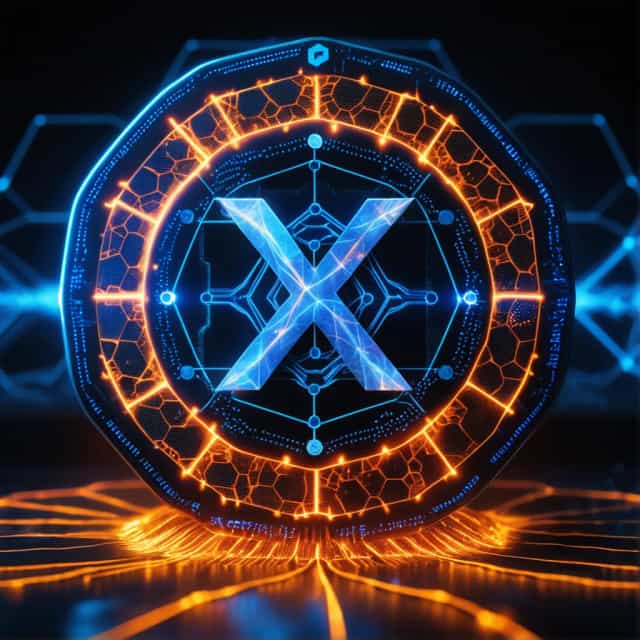![[Block Festa 2025] Professor Park Yong-beom: "How Blockchain Is Poised to Transform the Real Economy Beyond Finance"](/_next/image?url=https%3A%2F%2Fwww.blockmedia.co.kr%2Fwp-content%2Fuploads%2F2025%2F09%2F20250926-102809.png%3Fformat%3Dwebp%26width%3D600&w=1200&q=70)
Image source: Block Media
Institutional Frameworks and Blockchain Innovation: Advancing Digital Asset Adoption
Blockchain technology and digital assets are rapidly transitioning from niche investments to foundational infrastructure across diverse industries. Professor Yong-Beom Park, a leading authority and President of the Korea Blockchain Association, has emphasized the urgent need for comprehensive regulatory and institutional frameworks to support this transformation. Speaking at "Block Festa 2025" on October 26 at the Seoul Textile Center, Professor Park articulated how these emerging technologies are reshaping trust-based systems and the global economy.
The Role of Blockchain as Industrial Infrastructure
Blockchain, initially recognized for its financial applications, is now evolving to underpin a wide variety of industries. Professor Park underscored that blockchain’s ability to enable secure transactions, verification processes, and record-keeping positions it as a fundamental industrial infrastructure. “Blockchain technology extends beyond finance to enable trust and transparency in numerous aspects of business,” he explained. This evolution signals the growing significance of blockchain in data-intensive industries and public functions.
Expanding Applications: From Identity Verification to Trade Tracking
The versatility of blockchain is evident in its increasing adoption across sectors such as identity verification, product certification, and trade history tracking. According to Professor Park, reliable data management and enhanced transparency are key advantages of blockchain, making it applicable to both governments and private enterprises. “Digital assets and blockchain are no longer limited to payments—use cases range from secure digital authentication to management of public records, and even enabling efficiencies in supply chains,” he stated.
Bitcoin’s Institutional Maturity: A Case Study
Among digital assets, Bitcoin offers a clear narrative of evolution from speculative investment to an institutional-grade asset. Professor Park walked his audience through Bitcoin's milestones, starting with the release of its whitepaper in 2008, the mining of the Genesis Block, and early use cases like the famed "Pizza Day" transaction. Recent regulatory approval of Bitcoin spot ETFs further signals its acceptance within institutional frameworks.
Key drivers of Bitcoin’s maturation include its predictable halving cycles, heightened awareness of its scarcity, and large-scale adoption by corporations such as MicroStrategy. “Bitcoin has established itself as a legitimate financial alternative, driven by market dynamics, investor confidence, and global liquidity trends,” Professor Park remarked.
Growth Drivers: Stablecoins, Web3, and Artificial Intelligence
Looking toward the future, stablecoins, Web3 technologies, and artificial intelligence (AI) are poised to shape the next phase of growth for digital assets. Stablecoins are emerging as reliable tools for cross-border trade, while Web3’s decentralized platforms are transforming internet-based commerce. The intersection of AI with blockchain brings additional opportunities for automation, predictive analytics, and enhanced decision-making within digital ecosystems.
“Digital assets combined with Web3 and AI can address long-standing inefficiencies in traditional systems while creating entirely new industries,” Professor Park predicted. He highlighted real-world use cases such as QR code-based payments, peer-to-peer lending networks, and automated asset management services. These advances, he asserted, will bring blockchain into mainstream business operations.
Beyond Finance: Blockchain in Logistics and Trade
Blockchain’s potential goes far beyond its financial origins, with considerable applications in logistics, trade, and certification processes. Professor Park pointed to initiatives by the U.S. National Institute of Standards and Technology (NIST) that promote blockchain for supply chain management, data integrity, and advanced security protocols using zero-knowledge proofs. Such applications are already making waves by improving transparency, ensuring data protection, and fostering operational efficiency.
These developments signal that industries like logistics and trade are on the cusp of transformative changes as blockchain adoption expands. Professor Park also emphasized the critical role of international cooperation in creating interoperability and establishing standards. “To remain competitive, South Korea must align its industries with global trends in blockchain standardization," he said.
Addressing the Regulatory Void: Legal Status of Digital Assets
One of the most critical challenges in fully realizing the potential of digital assets is the lack of regulatory clarity. Professor Park expressed concern over the prevailing legal ambiguity and stressed the importance of establishing clear classifications and institutional recognition for digital assets. He argued that regulatory frameworks must not only define digital assets but also foster their growth as a globally competitive industry. “South Korea now stands at a crossroads where it can expand its digital asset industry into a key export sector by providing robust legal and institutional support,” he concluded.
The rapid evolution of blockchain technology and digital assets highlights their transformative potential across industries. With the right regulatory and institutional frameworks, these technologies could redefine not only the financial system but also the broader economic and industrial landscape. Professor Park's insights underscore the urgency of preparing for this paradigm shift, paving the way for a future where blockchain underpins a trust-driven, digital economy.










